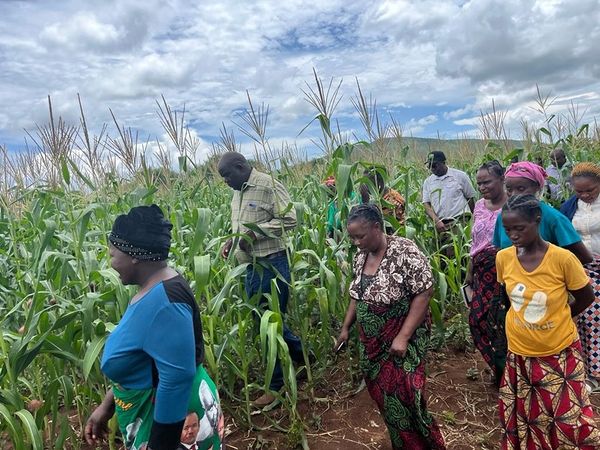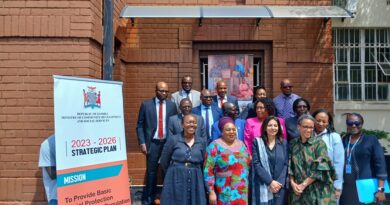Role of Climate Smart Agriculture and Fruit Trees
Dr. Douty Chibamba, the Permanent Secretary of the Ministry of Green Economy and Environment, has emphasized the crucial role of Climate Smart Agriculture practices and the cultivation of fruit trees in guaranteeing food security at both household and national levels, amidst persistent drought conditions experienced across various regions of the country.
Dr. Chibamba’s remarks came following his visit to small-scale farmers in Chipata, Eastern Province, who are actively engaged in Climate Smart Agriculture with support from the Zambia Integrated Forest Landscape Project (ZIFLP), spearheaded by the Ministry of Green Economy and Environment.
Despite the challenging climatic conditions, Dr. Chibamba noted with satisfaction that crops such as maize, soya beans, and sunflower, which are part of the crop rotation system under climate-smart agriculture, have shown resilience and performed well.
These farmers have been equipped with best practices in Climate Smart Agriculture, enabling them to mitigate the impact of drought on their yields.
Looking to the future, Dr. Chibamba assured that the Ministry will endeavor to expand support for farmers practicing Climate Smart Agriculture in Eastern Province under the successor project of ZIFLP. He emphasized the importance of scaling up such initiatives and encouraging more partnerships in this regard.
Furthermore, Dr. Chibamba, who oversees the Forestry Department, underscored the significance of prioritizing the planting of fruit trees. He stressed that fruit trees not only contribute to food security but also enhance nutritional value, thereby addressing critical aspects of public health and well-being.
The government, in collaboration with various partners including the World Bank, BioCarbon Fund (BioFC), and Global Environment Facility (GEF), has been instrumental in implementing the Zambia Integrated Forest Landscape Project in Eastern Province.
This project, which commenced in January 2018 and concluded in February 2024, aimed to enhance landscape management, foster environmental and economic benefits for rural communities, and bolster the capacity to respond effectively to crises and emergencies.



